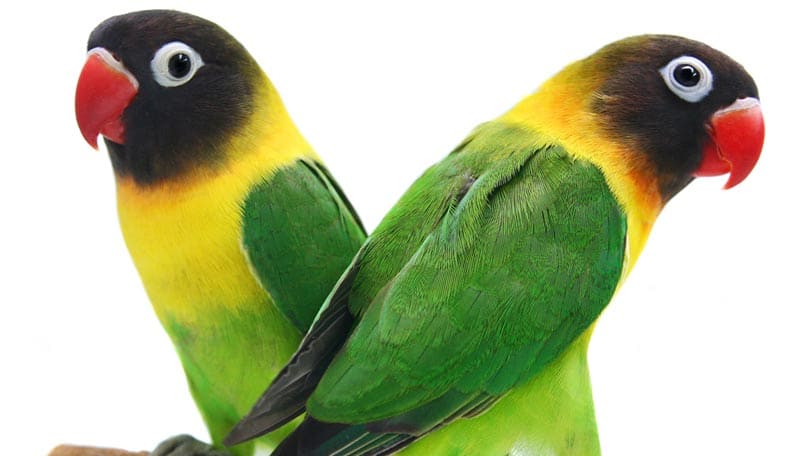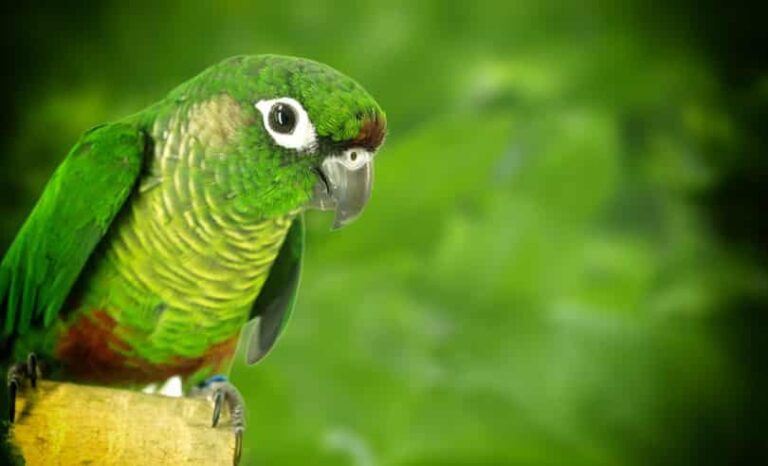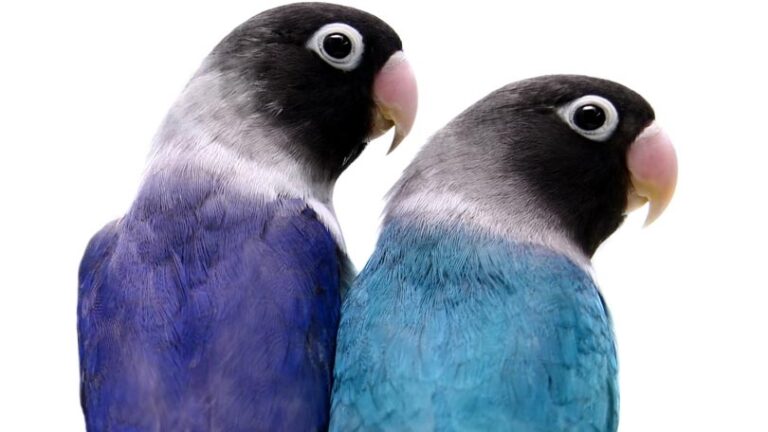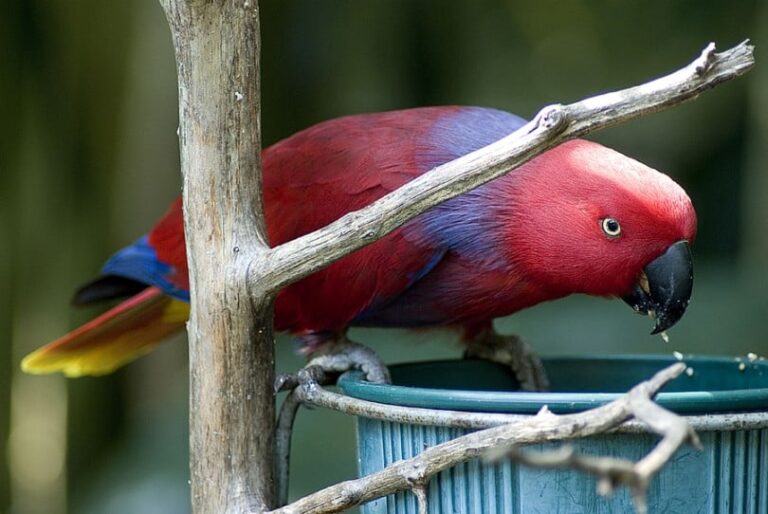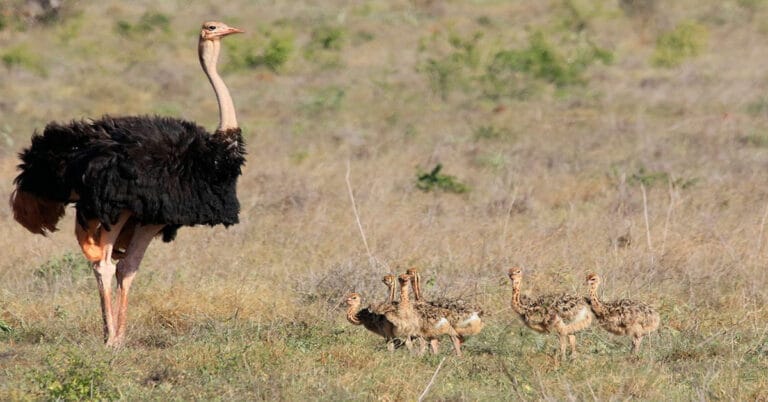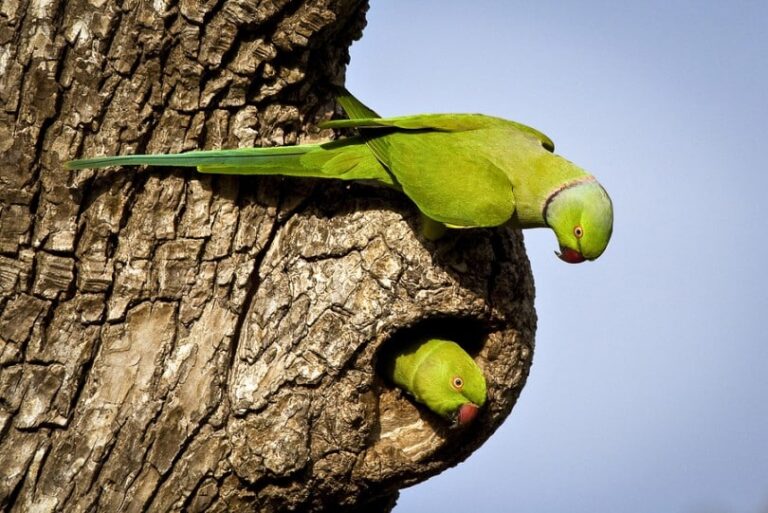Toys for Birds
Birds require more than a spacious cage, a fresh and varied diet, and clean water to thrive. They also need mental stimulation and physical exercise to stay healthy. More and more research indicates that parrots have intellectual capabilities comparable to those of a human toddler. Anyone who has spent time around parrots knows that they are highly intelligent, resourceful, and emotional creatures. One of the most important ways to meet your bird’s complex needs is to provide a variety of interesting toys that encourage exploration and play.
A bird deprived of attention and stimulation is a sad sight indeed. A parrot that is bored and lonely is prone to all sorts of behavior problems, including aggression, excessive screaming, feather plucking, and even self-mutilation. Once these behaviors begin, it is extremely difficult to correct them. Birds are creatures of habit, making it so vital for the owner to establish good habits from the beginning.
Teaching your bird to entertain itself with a variety of toys is an important responsibility of bird ownership and an ongoing one. Unlike dogs and cats, which sometimes lose interest in toys as they age, your parrot will require high levels of interactive play and a variety of toys its entire life.
To further understand why stimulation is so critical for your bird, it is helpful to remember several things about birds in the wild. First, birds spend a lot of time moving and doing things. They fly, forage for food, groom themselves and each other, watch out for predators, and find mates and raise offspring. By comparison, life inside a cage can get pretty dull. Secondly, birds are flock animals and have complex social needs. When you assume responsibility for a bird, you become that bird’s flock. The problem with this arrangement from the bird’s perspective is that you, its beloved flock number, spend a lot of your time doing things that don’t include the bird. The odds are that you go to work, run errands, meet friends for lunch, go shopping, mow the lawn, and attend assorted events while your bird is home alone, secured inside its cage. Toys help alleviate stress, boredom, and loneliness.
Choosing Toys for your Bird
There are so many toys available for birds today that choosing among them can be overwhelming to the bird owner. Through trial and error, you will observe which toys your parrot enjoys and which toys are ignored. Small birds tend to like mirrors and bells and other small shiny objects. Larger birds like to manipulate toys with their feet and beaks. Most birds love to swing, and many birds enjoy climbing as well. Choose toys for your bird that provide the opportunity for it to do the activities it would do in the wild. Be sure to include ladders and swings, toys for chewing, foraging toys, interactive and manipulative toys, and musical toys.
Ladders and Swings
Small birds will enjoy hopping from rung to rung while parrots will climb up and down ladders using their beaks and feet. Most birds love to swing, but make sure to choose a swing that is the proper size for your bird. Your bird should be able to perch comfortably without hitting its head, but the swing should not be so large that your bird has to struggle to move it. Swings and ladders are available in many different materials, including wood, acrylic, and rope.
Toys for Chewing
Most birds love to chew. Some of them, like Macaws and Cockatoos, will literally destroy furniture in short order if left unsupervised. Toys made from hard blocks of wood are often the favorite toy of large parrots. Finding toys that your parrot does not destroy immediately is sometimes a challenge. It is not uncommon to spend $40.00 or more to obtain a wooden toy that will last your large parrot a few weeks. Owners who try to buy less expensive toys often find those toys destroyed in less than 24 hours. In addition to wood, birds often enjoy chewing paper toys and toys made from rope.
Toys for Foraging
In the wild, birds spend a lot of time foraging for food. By contrast, birds in captivity are usually served their food in bowls. Toys that require the bird to work to obtain seeds or dried fruit treats are stimulating and fun.
Interactive and Manipulative Toys
Toys for your bird should include one or more with movable parts that your bird can hold, turn, or otherwise manipulate. Parrots especially enjoy puzzle toys and foot toys like dumbbells. Toys that play music when a button is pressed are great interactive toys for your bird. Foods such as broccoli, corn on the cob, and walnuts are fun to manipulate and nutritional for birds.
Musical Toys
Birds love sound and will delight in toys that make music or other noise. Bells are a huge hit with small and large birds alike. Make sure to buy a bell designed for your specific bird. Even medium sized birds can disassemble poorly made bells and possibly digest the parts. Don’t overlook playing the radio for your bird. You might want to also invest in some of the audio tapes made specifically for birds, including ones that help teach your bird to talk.
Variety, Safety, and Cleanliness
Your bird should be given a variety of toys which are rotated frequently. Do not change all of your bird’s toys at once, as this may provide too much change for your pet. The purpose of rotating toys is to prevent boredom, so use common sense and change only one or two toys at a time as you see your bird losing interest in particular toys. Also, be careful not to overcrowd your bird’s cage. Your bird must have room to move around and extend its wings for exercise.
Safety is a primary concern to any bird owner. Inspect toys daily and remove any that are cracked, broken, have loose parts, or have become frayed. Make sure toys are secured to the cage with clips and placed where your bird can reach them, typically at the ends of each perch.
Toy should be washed and disinfected in the same manner that perches and bowls are cleaned. Worn and damaged toys should be discarded or replaced. Toys made from rope and wood will need to be replaced more often than acrylic or metal toys.
Final Points
Different birds respond differently to new toys. Amazon parrots and Macaws tend to be outgoing birds that inspect new toys readily. African Grey parrots and Cockatoos are often shy and reluctant. It is important not to frighten your bird with new toys. If your bird is reluctant, introduce the toy outside of the cage. Allow your bird to watch you playing with the toy. Encourage your bird to join you in play.
Toys are critical for the physical, mental, and emotional well being of your bird. Have fun when choosing toys for your bird. And remember that you are your bird’s best playmate and companion. While toys are essential for your bird’s well being, and help to occupy your pet in your absence, they do not replace the one on one time you spend interacting with your bird.

Having discovered a fondness for insects while pursuing her degree in Biology, Randi Jones was quite bugged to know that people usually dismissed these little creatures as “creepy-crawlies”.

